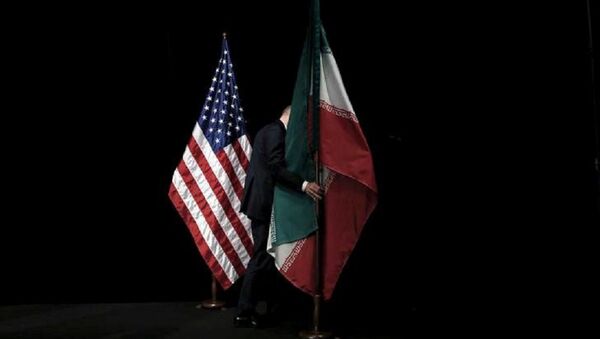Sputnik spoke to Defence analyst from the Massachusetts Institute of Technology, Subrata Ghoshroy, to find out what the chances of Tehran adhering to US diktat actually are.
Sputnik: So how likely is it that Iran will comply with the demands set out by Secretary of State Pompeo in his speech yesterday?
Subrata Ghoshroy: Very unlikely, these demands that Iran should completely surrender not only its nuclear programme but also its national sovereignty. So given the nature of the Iranian and its history of the revolution, I cannot imagine that it will comply with any of these demands.
Sputnik: EU foreign policy Chief Federica Mogherini has said that Pompeo’s speech didn’t offer any new alternative, and that the JCPOA is still the way forward, while Germany’s minister of economy has said that Berlin will try to help German companies doing business in Iran, it probably won’t be able to protect them from the consequences of US sanctions. Do you see it as inevitable that the EU will eventually, under economic and political pressure, give in and throw its weight behind the US’ new position?
Subrata Ghoshroy: I do. I believe that there is disconnect between the US approach to this Iranian question and the European position that after years and years of negotiations the JCPOA was done.
It’s P5+1, six major countries of the world, unanimous decision at the UN Security Council. And now they just want to upend the entire thing.
But, I think that the US has a lot of leverage in terms of how it processes dollar denominated currency transfers internationally so the sanctions are very powerful for multinationals that do business in the US and elsewhere so the Iranian market may be growing, and potentially large, but its nothing like the US market. So I think that ultimately business concerns will dominate and the EU countries, if I may use the word, they will fold.
Sputnik: Suzanne Maloney, the deputy director of the Brooking Institution think tank's foreign policy program, said Pompeo's speech amounts to a strategy of regime change. Saying that, "There is only one way to read it and that is that Trump administration has wedded itself to a regime-change strategy to Iran, one that is likely to alienate our allies. One with dubious prospects for success” – what do you make of that assessment?
Subrata Ghoshroy: I’m actually quite surprised by the reaction from the Washington-based so-called experts on this issue that they have, I was listening to a broadcast yesterday with Mark Fitzpatrick who’s a well-known commentator and I believe it was Suzanne, I forget her name now, from Brookings, they both said that this is terrible that this is absolutely a recipe, or a prescription for regime change, I will only say to that, I totally agree, that this is not something new.
This so-called ‘plan b’ is the ‘plan a’ that the US was trying to execute during the Bush administration. So you had Cheyney, Wolfowitz, Richard pearl and others who had this whole area of this axis of evil and now they have gotten Libya, they’ve almost succeeded in destroying Syria, and now Iran so with the Israeli agenda and the American neo-con agenda the conflation of these two is bringing about this agenda for the old regime change.
The views expressed in this article are those of Subrata Ghoshroy and do not necessarily reflect the official position of Sputnik.



